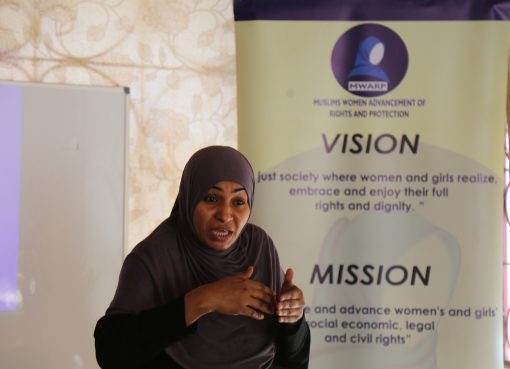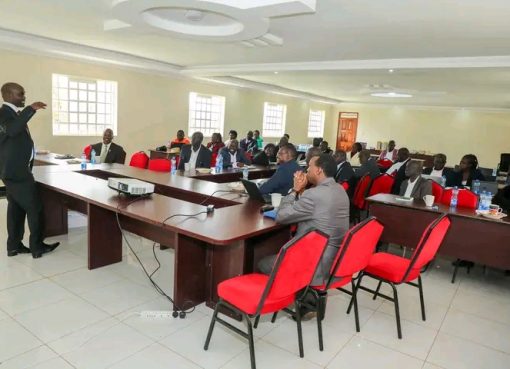The government has sent 25 million textbooks to public primary schools to help improve early grade literacy under the TUSOME project, the Director General of Education, Elyas Abdi has said.
The textbooks were sent to schools under the auspices of Tusome Programme, which is being funded by USAID at a cost of 53.8 Million USD.
Abdi said the English and Kiswahili textbooks have benefited close to 9 million learners in class 23,000 public primary schools.
“It has had impact on literacy as learners are able to read and comprehend with the fluency early grade literacy requires,” the Director General noted during an interview as part of a documentary on Tusome in his office Wednesday.
He said the teachers who are implementing the programme have undergone a series of intensive training sessions to equip them with relevant teaching methodologies the programme require for effective delivery of the English and Kiswahili curriculum in class 1 and 2.
Abdi said that the government was focusing on learning beyond mere access to education or schooling. He said literacy skills provided the foundation learners require to progress to higher grades, saying it facilitated learning in other disciplines.
The Tusome Programme is based on the results of pilot studies carried out under the Primary Maths and Reading (PRIMR) initiative in 547 schools in five counties from 2011 to 2014. The pilot studies were carried out in Nairobi, Nakuru, Kisumu, Kiambu and Murang’a counties.
The studies followed various reports that most pupils in upper primary schools were virtually unable to read and understand written materials designed for children in lower classes.
Results of PRIMR initiative indicated that well-designed syllabus-based teacher’ guides, intensive teacher training, and targeted ongoing support through Teachers Advisory Centres (TAC) tutors could improve instruction, leading to significant gains in pupil literacy and numeracy performance.
TUSOME programme was designed as a national literacy programme to ride on the gains realized in PRIMR.
The program is being implemented in all public primary schools and in 1000 Alternative Basic Education and Training (APBET) institutions serving low cost urban settlements and benefits 5.4 million children in public schools and 100,000 children in APBET institutions.
By Kennedy Buhere



